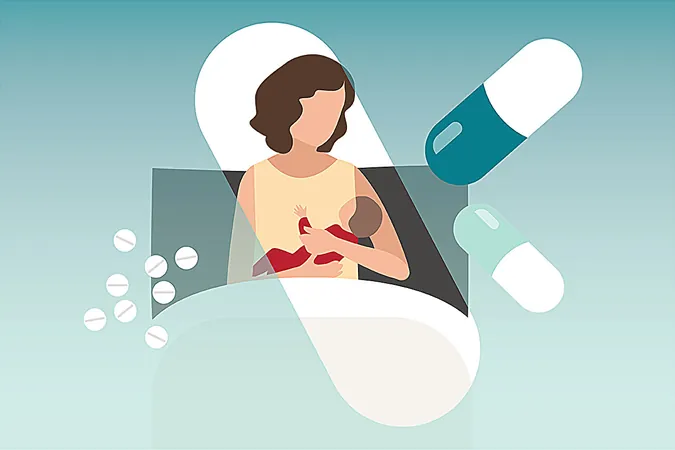
Revolutionary Care Model Boosts Hepatitis C Treatment for New Moms
2025-09-11
Author: Li
Hepatitis C is a silent enemy, a blood-borne virus that can wreak havoc on the liver, leading to cirrhosis, liver cancer, and ultimately death if untreated. Despite the existence of effective treatments, Hepatitis C continues to be a major health concern, particularly for women of childbearing age—who represent over 20% of chronic infections worldwide.
A New Safe Haven for New Mothers
New mothers are particularly vulnerable, finding it challenging to pursue outpatient care during the demanding postpartum period. However, a groundbreaking study from Washington University School of Medicine has introduced a game-changing solution: initiating antiviral treatment right in the hospital during their stay after giving birth.
This innovative program has shown promising results, as new mothers receiving care from infectious disease specialists while still hospitalized were twice as likely to be cured compared to those who were sent home with a referral for future appointments.
Changing the Game with "Meds to Beds"
The new approach, termed "Meds to Beds," emerged from a collaboration between infectious disease experts and obstetricians. By integrating treatment into the care provided during labor and delivery, the risk of patients falling through the cracks has been significantly reduced. Dr. Laura Marks, the study's senior author, emphasizes the importance of this integration, stating that many women were slipping through the system due to outdated care models.
Transforming Statistics into Success Stories
In a thorough review of medical records from 149 mothers who tested positive for Hepatitis C at Barnes-Jewish Hospital, researchers found that two-thirds of patients who began treatment immediately after delivery completed their therapy. In stark contrast, only about one-third of those referred for outpatient care followed through.
Alarmingly, over half of the women in the outpatient group failed to attend their follow-up appointments. The study measured successful treatment using lab tests or patient reports indicating they had completed the necessary antiviral medication.
The Ripple Effect of Curing Hepatitis C
Curing Hepatitis C has vast implications—it safeguards the health of mothers and their families, enhancing future pregnancies. Dr. Jeannie Kelly highlights the urgency of closing treatment gaps by delivering medication directly to postpartum mothers, thereby improving health outcomes.
Expanding the "Meds to Beds" Model
The pioneering "Meds to Beds" model isn't stopping with postpartum mothers; it's set to benefit all patients with untreated Hepatitis C. As WashU Medicine leaders train their colleagues to replicate this approach, they aim to streamline care beyond the hospital setting.
Since its inception, the program has already provided bedside care for over 200 patients, marking a significant leap forward in Hepatitis C management. The success of this model may soon pave the way for its application to other infectious diseases, proving that the healthcare system can adapt and innovate for the benefit of community health.
A Vision for the Future
Dr. Marks encourages a shift toward new care models that prioritize community health, urging healthcare providers not to shy away from innovative approaches. The exciting success of the "Meds to Beds" program may just be the beginning, as the team works to extend this strategy across broader medical practices.



 Brasil (PT)
Brasil (PT)
 Canada (EN)
Canada (EN)
 Chile (ES)
Chile (ES)
 Česko (CS)
Česko (CS)
 대한민국 (KO)
대한민국 (KO)
 España (ES)
España (ES)
 France (FR)
France (FR)
 Hong Kong (EN)
Hong Kong (EN)
 Italia (IT)
Italia (IT)
 日本 (JA)
日本 (JA)
 Magyarország (HU)
Magyarország (HU)
 Norge (NO)
Norge (NO)
 Polska (PL)
Polska (PL)
 Schweiz (DE)
Schweiz (DE)
 Singapore (EN)
Singapore (EN)
 Sverige (SV)
Sverige (SV)
 Suomi (FI)
Suomi (FI)
 Türkiye (TR)
Türkiye (TR)
 الإمارات العربية المتحدة (AR)
الإمارات العربية المتحدة (AR)